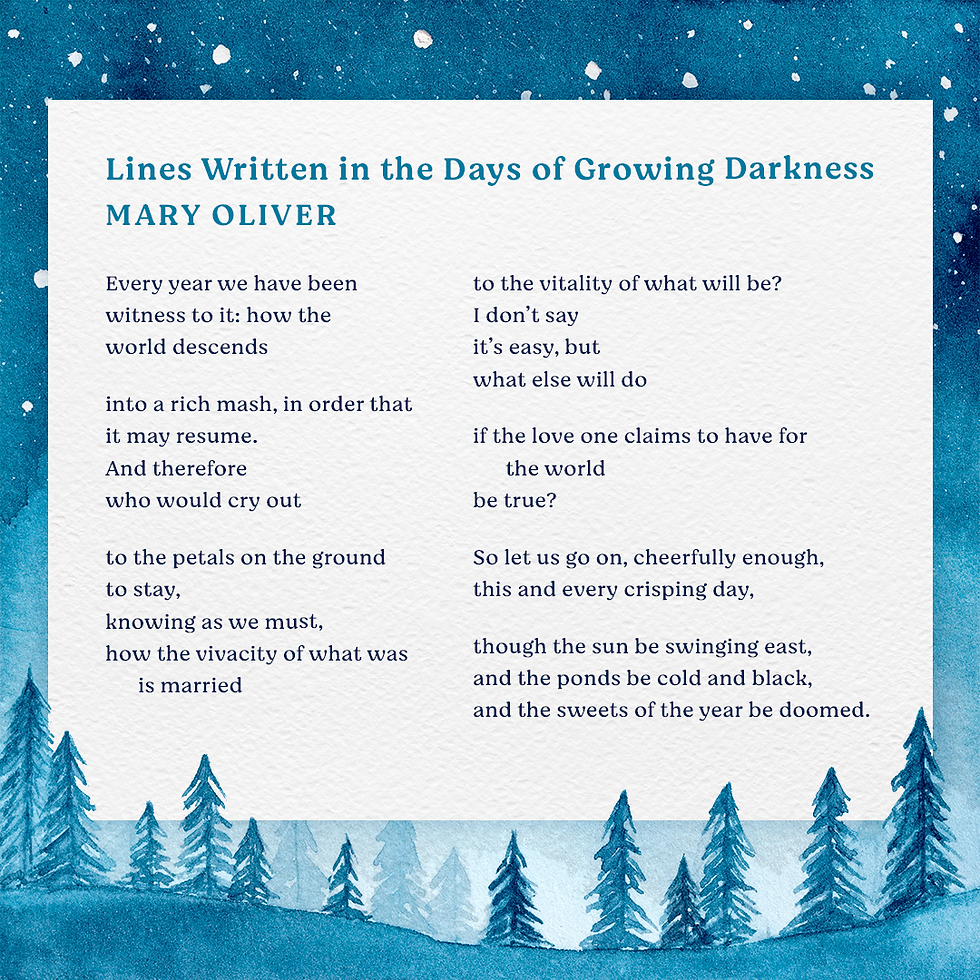How to help someone who is grieving
- Kate

- Dec 2, 2022
- 1 min read

Concrete do's and don't's for anyone who has lost someone, especially a parent, this holiday season from the Globe's Kara Baskin. And a wonderful grief support: Hope Lives Here, helping people "make connections with others who are also struggling with loss by providing support in the form of outreach, peer to peer (one-on-one) support, groups (meditation groups, support groups, etc.)"
‘Let me know if I can help!’ and other things never to say to a grieving person By Kara Baskin Globe Correspondent,Updated December 2, 2022, 1 hour ago




